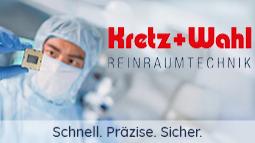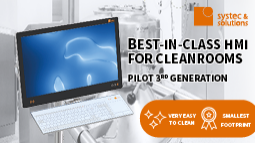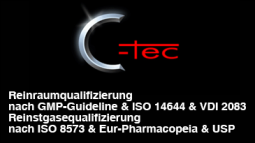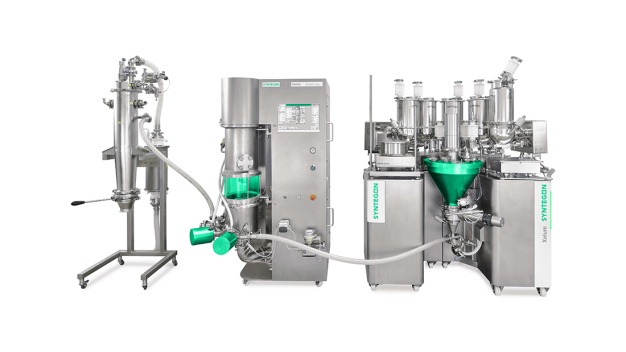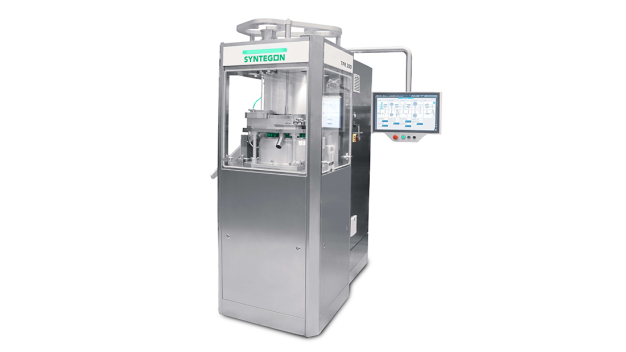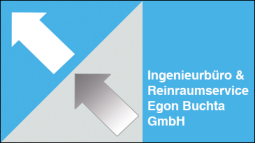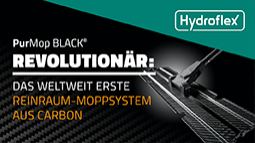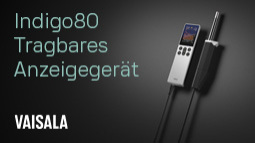- Planning
Achema 2022: Syntegon showcases new solutions for process development and manufacturing of solid pharmaceuticals
– Fluid bed Solidlab 2 Plus: efficient development of batch and continuous manufacturing processes
– TPR 200 Plus: flexible tablet press with containment for small to medium-sized batches
– Automated product feeder “APD Feeder”: optimal determination of process parameters for tablet presses
At this year’s Achema in Frankfurt, Syntegon is presenting new solutions for the production of solid pharmaceutical dosage forms. With the fluid bed laboratory unit Solidlab 2 Plus and the tablet press TPR 200 Plus, the company will display upgraded versions of two proven systems at booth C71 in hall 3.1. Both the Solidlab 2 Plus and TPR 200 Plus enable time-saving product transfers from laboratory to production scale, also supporting continuous manufacturing processes. In addition, both systems ensure easy cleanability as well as optimal operator protection thanks to containment features.
Solidlab 2 Plus: focus on containment and continuous production
The fluid bed Solidlab 2 Plus allows manufacturers to flexibly develop granulation, drying and coating processes, as it covers all steps in a single product vessel. With the Solidlab 2 Plus, Syntegon also offers the only solution available on the market for the development of both batch and continuous manufacturing processes. “The Solidlab 2 Plus can be configured according to customer requirements, thus offering maximum flexibility in terms of both process development and the subsequent transfer to production scale,” says Fritz-Martin Scholz, product manager at Syntegon. The fluid bed, equipped with a powerful Hüttlin bottom spray system, can process batch sizes ranging from 0.25 to 12 kg.
The Solidlab 2 Plus provides an ideal basis for the development of batch processes and the subsequent transfer to production equipment, as the laboratory unit and the production platforms from Syntegon use the same technology. “Solidlab 2 Plus helps manufacturers to determine the optimal process parameters for batch operation and transfer them to the batch production plant using scale-up software. Companies thus save valuable development time and cost,” Scholz adds.
In addition to batch processes, the Solidlab 2 Plus can facilitate the development of continuous manufacturing processes. When combined with a feeder-blender-unit, the Solidlab 2 Plus becomes the Xelum R&D, Syntegon’s development platform for continuous manufacturing. In this configuration, the Solidlab 2 Plus covers the central granulation steps of the continuous production platform Xelum. Process parameters from the Xelum R&D can be transferred directly to the Xelum production unit, eliminating the need for scale-up. This applies to fluid bed granulation as well as direct compression without granulation.
Thanks to software-supported automatic Design of Experiments (DoE), the Xelum R&D can automatically run several pre-defined parameter sets thus efficiently developing the design space of the formulation.
For handling highly potent active ingredients, the system can be equipped with containment features such as “safe change” filters and split valves, as well as a recipe-controlled automatic cleaning system for both batch and continuous manufacturing processes.
TPR 200 Plus: safe and flexible tableting
The TPR 200 Plus tablet press offers efficient and user-friendly processing for various granules and pellets. It also features a light containment concept with dust-tight machine protection up to OEB 3. Besides the production of small and medium-sized batches, the compact system supports the development of continuous tablet production. When combined with the Solidlab 2 Plus, the TPR 200 Plus is particularly suitable for laboratory-scale test runs and subsequent scale-up. “The TPR 200 Plus is essential to process development,” emphasizes Andreas Nüssle, product manager at Syntegon. “Our new solution helps pharmaceutical companies to achieve the best possible tableting.”
Among other features, the APD Feeder (Automated Process Development) helps make that possible: thanks to the new, automatically adjustable powder feeder with APD software, companies can define the optimum parameters for the formulation feed into the die. The new system also allows them to improve existing processes and increase the product yield and quality in tablet production. Process efficiency benefits from an integrated Data Acquisition System (DAQ), which allows to assess tablet quality and process stability on the basis of up to 600 measuring points per compression process. “In this way, the TPR 200 Plus provides crucial information on where to further improve tableting,” Nüssle continues. The press’ light containment concept includes an optionally integrable dry cleaning function with glove ports and specially designed suction nozzles for extracting dry powder residue. Rotors with removable segments help to avoid the need to remove individual sealing rings, improving the cleanability of the rings on the press plungers.
Comprehensive pharmaceutical expertise and service portfolio
In addition to the equipment on display, the Syntegon portfolio includes further solutions for the production of solid pharmaceuticals. These include stand-alone machines and complete solutions, both for laboratory-scale and high-performance applications. In addition to tablet presses, the company offers capsule filling machines, tablet coaters, high-shear mixers and continuous manufacturing systems such as the Xelum platform. A comprehensive consulting and service offering spanning the entire machine lifecycle rounds out the portfolio. Whether spare parts service or remote maintenance, modernization or preventive maintenance, Syntegon covers a wide range of new and customized services, including new digital solutions for holistic machine data collection, processing and analysis.
![]()
Syntegon Technology GmbH
Blaufelder Straße 45
74654 Crailsheim
Germany
Phone: +49 7951 4020
email: packaging-ph@syntegon.com
Internet: http://www.syntegon.com
